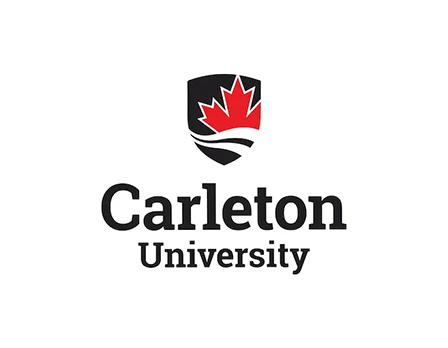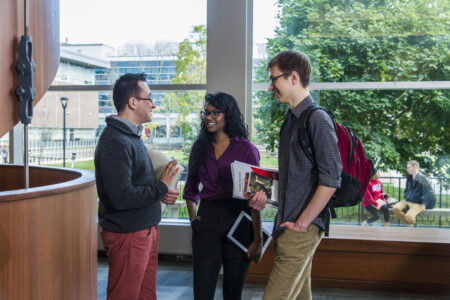Andrew Moffat was in the midst of his B.Eng. in Mechanical Engineering at Carleton University when he realised he wanted to be in a field with greater impact. He wanted to be part of the bigger picture in energy engineering decisions. “My capstone project in energy engineering led me to discuss with various faculty members in the Sustainable Energy programme about where to go in the future,” says the 24-year-old. “I liked the multidisciplinary aspect of the programme. Furthermore, I would have the freedom to choose what project interested me the most on the research side, and the courses I took gave me an excellent grounding in the field.”
Located in Ottawa, Canada, Carleton University was originally founded to meet the needs of veterans returning from the Second World War. Today, it is home to more than 30,000 talented, committed, and enthusiastic students preparing for careers in our rapidly changing job market.
As a university always striving for innovation in research, teaching, and learning, Carleton offers programmes that do just that. The Sustainable Energy suite of programmes is one recent example.
“The programme exposed me to the political and regulatory side of engineering which I found was lacking in other programmes, giving me the base of knowledge to understand the impacts of engineering decisions,” Moffat says. “I’ve also learned about advanced topics in solar energy and combustion, both of which are highly in demand. The former is for renewable energy generation, and the latter is for improving existing technologies.”

The Sustainable Energy programme consists of five master’s degrees, all revolving around sustainability. Source: Carleton University, Department of Mechanical and Aerospace Engineering
The suite of programmes include the Master of Public Policy – Sustainable Energy and the Environment, Master of Public Policy – Sustainable Energy and the Environment with Collaborative Specialisation in Climate Change, MASc Sustainable Energy, MEng Sustainable Energy, and MEng Sustainable Energy with Collaborative Specialisation in Climate Change.
These five degrees cultivate an interdisciplinary understanding of energy systems where future engineers and policymakers learn from each other’s vastly different fields. Engineering students learn how public policy is formed, why it matters, and how to employ it. Public policy students, on the other hand, learn about energy conversion, including thermodynamics and fluid mechanics. What emerges are the best data analysts, risk analysts, and quantitative policy analysts, i.e. graduates with the confidence and competence to work in two of these fields or even more.
“This programme is highly interdisciplinary by design, and coming from an engineering background fuelled my desire to deepen my understanding of the role of policymaking in developing and deploying sustainable energy systems,” says student Angelique Catcha-Picard from Cote d’Ivoire. “My policy courses at Carleton University encouraged me to explore sustainable energy literature outside my research focus. This expanded my view of how engineering solutions could integrate social, economic, and environmental considerations to ensure a sustainable future.”
Although each master’s degree has its own courses that relate to their respective fields, the Applied Interdisciplinary Project is the programme’s common ground. This core course puts engineering and public policy students together to work with real-world clients from municipalities, companies, or civil society organisations to solve an energy or environmental problem they face. This fosters a sense of teamwork and collaboration, as well as exposes you to real-life situations, preparing you for a professional setting.

The university’s proximity to government institutions, libraries, and media make it a great place to learn and live. Source: Carleton University, Department of Mechanical and Aerospace Engineering
Courses are not the only way you will learn about sustainable energy in engineering and policymaking. You will also get to attend evening seminars where academics, power system operators, regulators, and policymakers visit to brief students on recent developments in the energy transition. Some speakers come to recruit too. Field trips to various sites like Canadian Nuclear Laboratories and the Moses-Saunders Power Dam in Cornwall, Ontario are also part of the programme, allowing you to learn more through experiences than solely through books.
Attending seminars and visiting sites are great ways to expand your network too. Whether you interact with professionals from the industry or alumni who have gone on to hold senior positions in large energy project development firms, you are sure to make connections that can benefit your career.
“The network I developed at Carleton University has proven exceptionally valuable,” Catcha-Picard says. “I was fortunate to network with top researchers and industry leaders from Canada and other countries during our stimulating seminars. These connections have not only enhanced my learning experience but have also laid a firm foundation for my future endeavours in the field.”
Follow Carleton University on Facebook, Instagram, LinkedIn, X, and YouTube.













